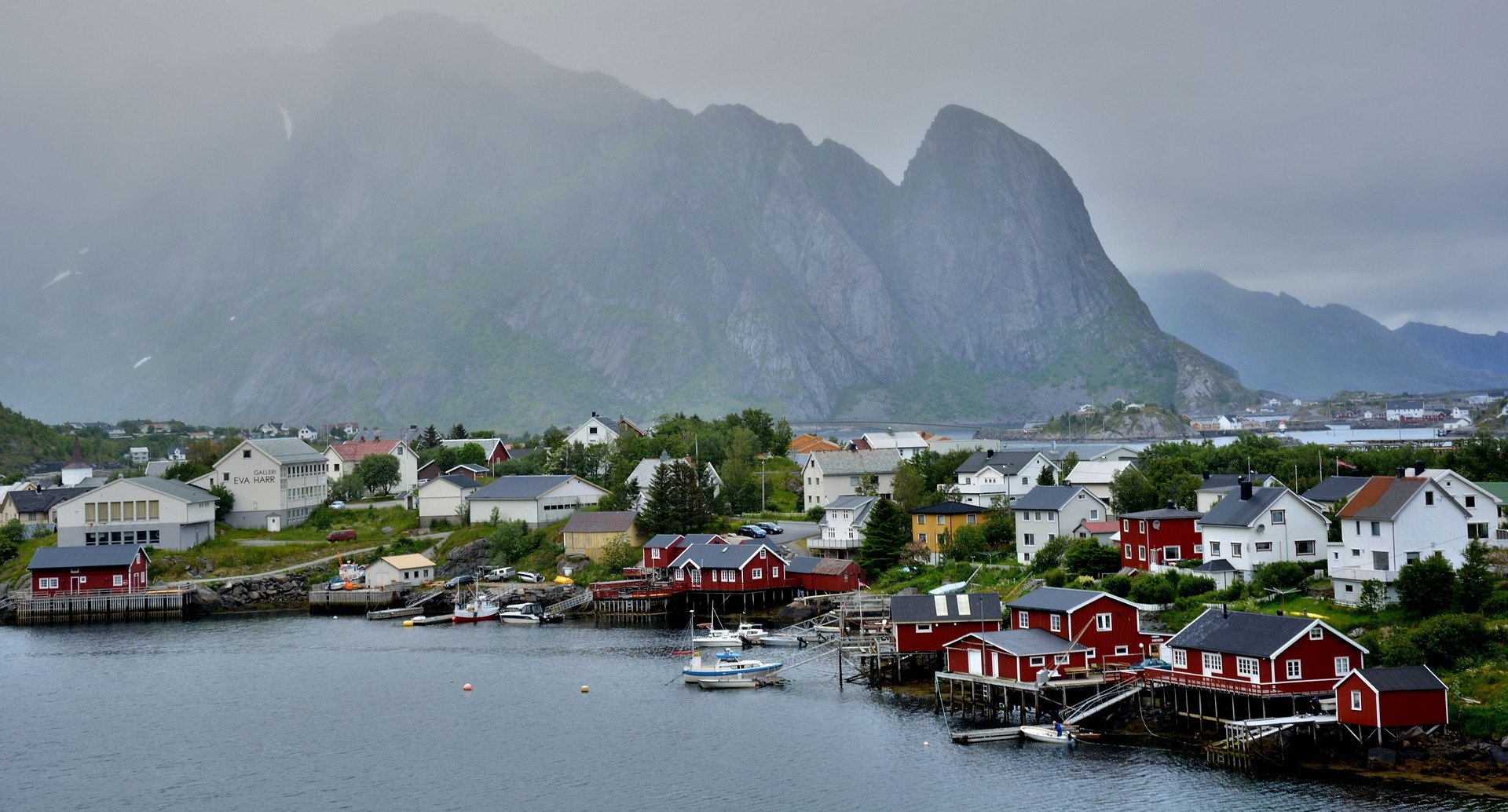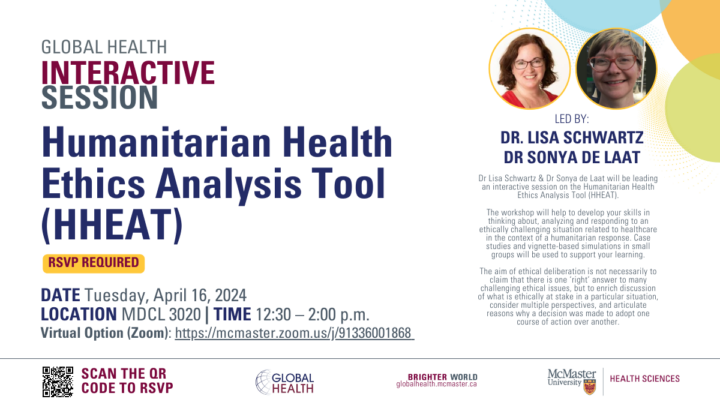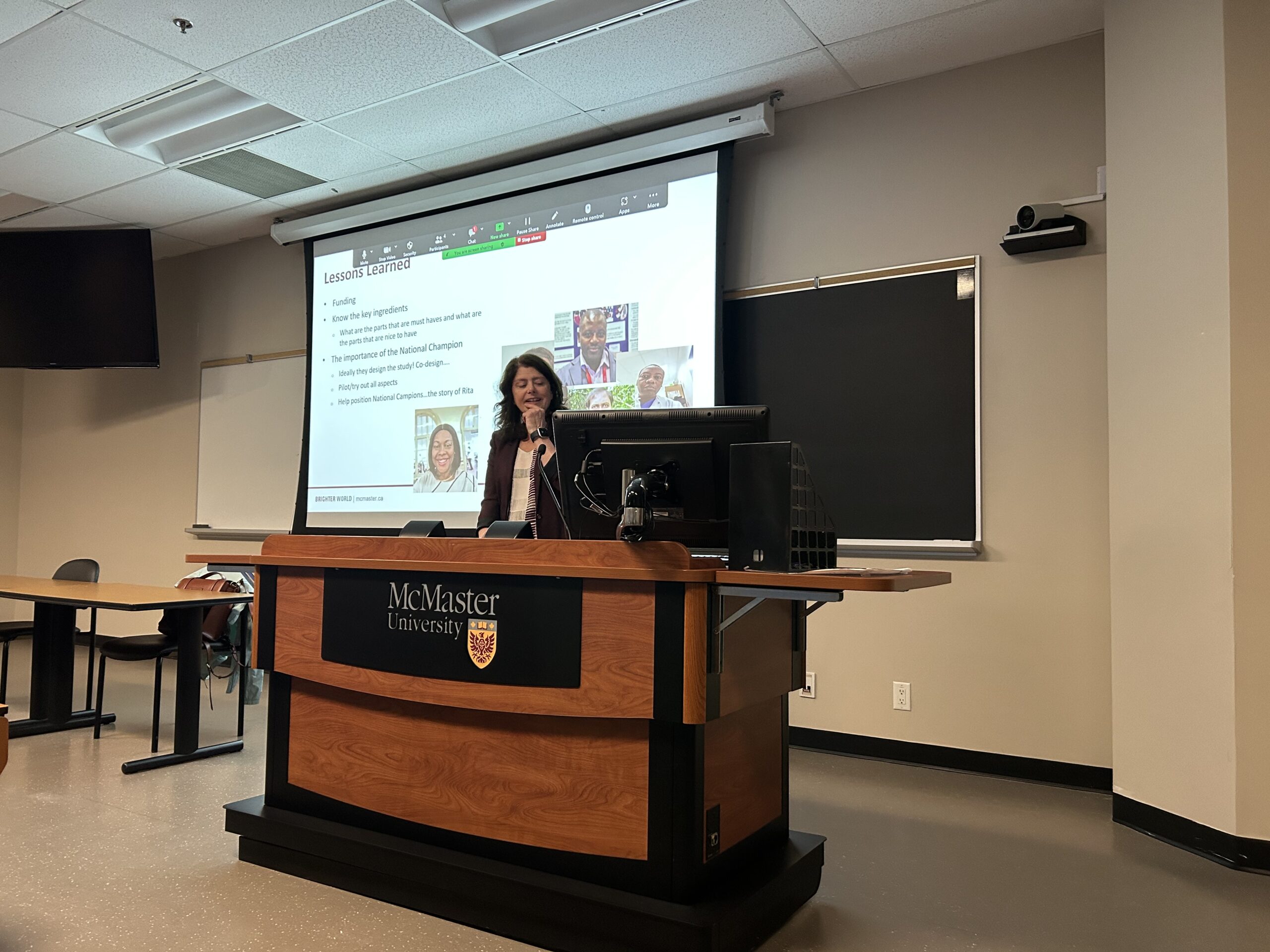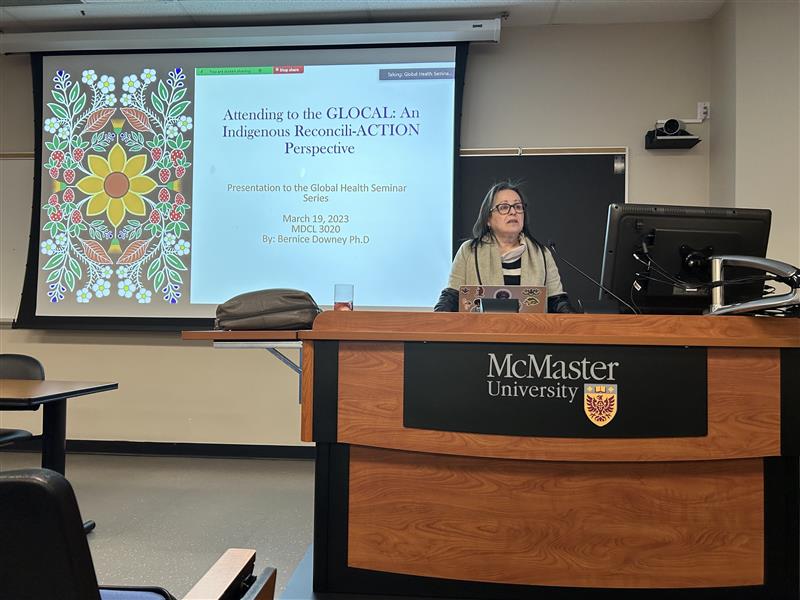Examining global health challenges faced by Arctic communities

Despite documented health disparities between the circumpolar north and other regions, the Arctic remains an underrepresented area in global health scholarship, which the global health program has been eager to explore.
The new graduate course, Circumpolar Health: A Global Health Perspective, explores interdisciplinary perspectives on global health issues in the circumpolar north.
MSc in Global Health student, Nour El Asswad discusses her learning experience in the circumpolar health course which provided her with an introduction to Arctic health from a global perspective while exploring the impact on health inequity within the circumpolar north.
My experience taking the Circumpolar Health: A Global Health Perspective course, has been enlightening and insightful in terms of introducing Arctic health from a global perspective and being able to explore the interdisciplinary outlook of the impact on health inequity within the circumpolar north. Prior to the course, I had no knowledge in the field of social determinants of health within circumpolar communities, environmental and climate change issues, or arctic governance and development in the north. This class has broadened my viewpoint on the colonial history within the region in addition to the powerful role of institutional structures that play a part in aiming to achieve equity in order to effectively advocate for these changes at a legislative level. Given these extensive issues, the course focuses on fostering international collaborations between scientific and indigenous researchers and experts by introducing their perspectives, disseminating their research findings, and highlighting critical aspects within health for improvement of peoples, environment, resources, and economies.
It has been particularly interesting to examine the challenges faced by Arctic communities not only within Canada, but regions like Scandinavia and Alaska and contrast these dilemmas with those populations living in more southern and warmer climates. Issues such as food and water insecurity, migration, health care inaccessibility and economic restraint are only a few of the intersecting topics that are highlighted and reverberated throughout the many themes of this course. Specifically, that the burden has fallen on the Indigenous populations in these regions, as extreme changes in climate sweep across the environment making this already underserved and marginalized community even more vulnerable to the susceptibility of disease. As a result, the course demonstrates the alarming rate of infectious and water-borne diseases in this subpopulation and why it is significantly higher than other communities. This course enabled us to expand our critical thinking by investigating the impact that this has had and why there must be a greater emphasis on expanding and improving access to health facilities and services.
For more information about the course, check out this link.
Student Blog



